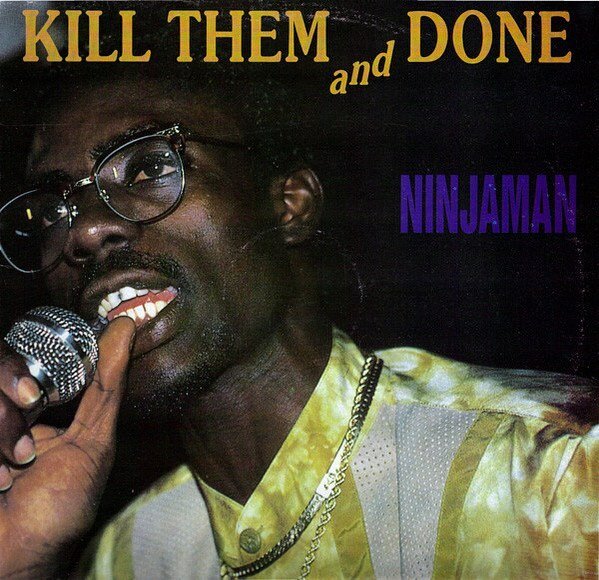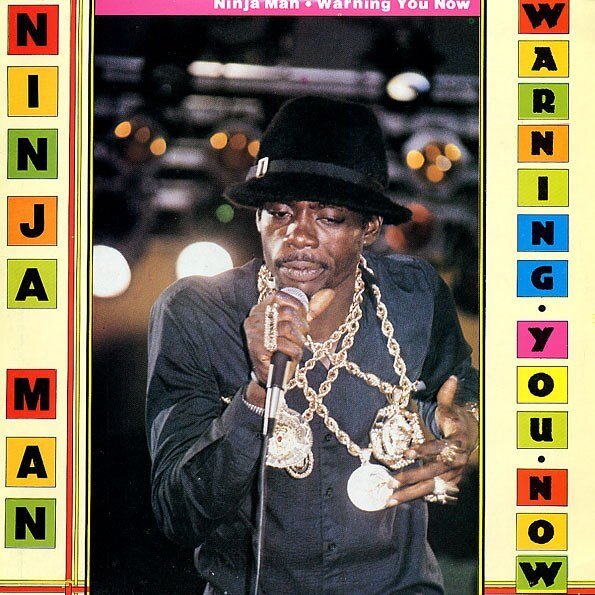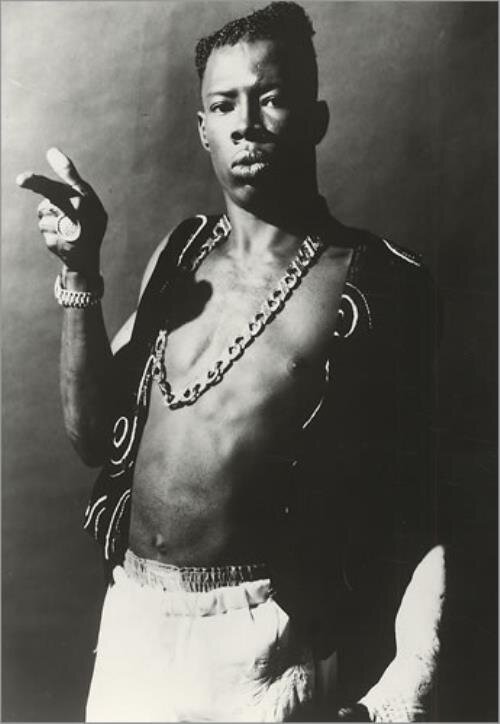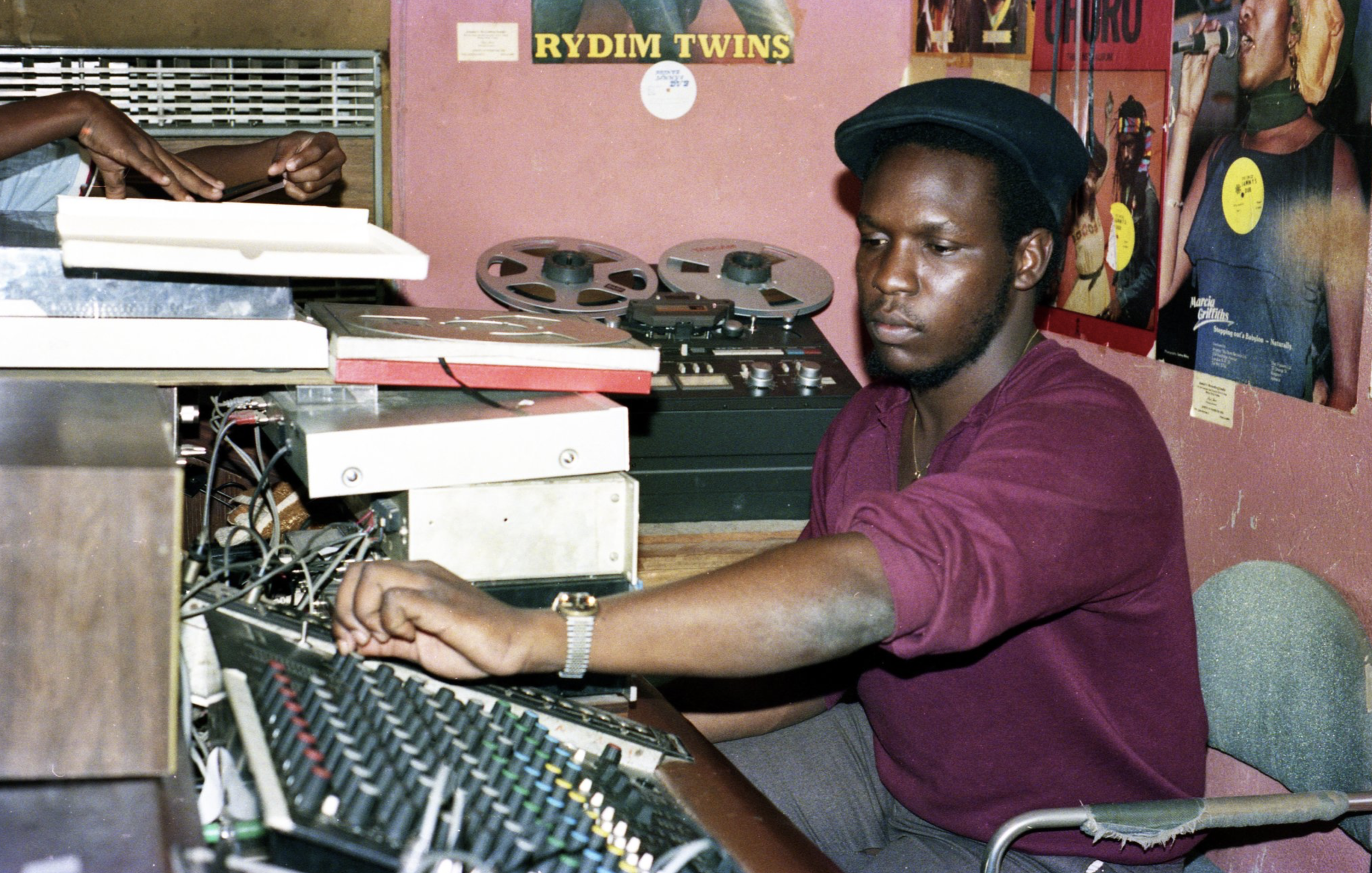Dancehall reggae
From the first hard hitting digital beats of Shabba’s "Gal Yuh' Good" I was hooked. It was 1991. Ninjaman was a rising star and a year later, in 1992, Buju Banton would release the album ‘Mr. Mention’ produced by Donovan Germain.
By the early 1990s reggae music had evolved into dancehall with influenzal producers like Bobby Digital and King Jammy. Years before in 1984 King Jammy and Wayne Smith developed the first computerized sound based on a pattern found on the Casio MT-40 home keyboard. The Sleng Teng riddim was an instant hit in the dancehall.
By the early 1990s riddims were often digital, performances more aggressive and extravagant. The lyrics explicite, Yellowman experimented with slackness, Ninjaman adopted gun talk lyrics, not perse glorifying violence, but as a metaphorical language. Dancehall reggae is machismo in overdrive.
My favourite, but controversial, artist is Ninjaman, born as Desmond John Ballentine in 1966. Ninjaman recorded his first hit single in 1987. Between 1989 and 1992 Desmond cemented his career through an unique style of performing lyrics. In the early 1990s he ruled dancehall and sound clash. In 2017 Desmond was convicted to a life sentence for the 2009 murder of Ricardo Johnson.
Spots Road Show
In Amsterdam a Dutchman from Suriname (artist name: Daddy Dan) set up a Jamaican style sound system called Spots Road Show. He held regular shows at Cafe De Kroeg (Lijnbaansgracht). The Spots Road Show has now faded from memory, even Google doesn’t hold any record of it. I was a regular at the shows, while it lasted. It was a narrow place with a tiny dance floor. The speakers were stacked from floor to ceiling. The heavy bass literally shook the floor as the needle hit the groove.
During the nineties, as I was deciphering the Jamaican patois, I grew angry over the often homophobic lyrics of Jamaican artists. At one point I stopped visiting live concerts because of this. Shabba Ranks was dropped by Epic records in 1996 due to his homophobic views which basically ended his career.
I still love dancehall reggae though. The music is ingrained into my being.
Buju Banton’s first album: Stamina Daddy.
Shabba Ranks. First international album “As Raw as Ever” produced by Bobby Digital
Discography
Buju Banton - Song: Quick. Album: Stamina Daddy. Year: 1992. Stalag riddim.
Buju Banton - Song: Murderer. Year: 1993. Far East riddim. Producer: Donovan Germain.
Shabba Ranks - Song: Dem Bow. Album: Just Reality. Year: 1990. Poco Man Jam riddim. Producer: Bobby Digital.
Ninjaman - Song: My Weapon. Year: 1990. General (1) Riddim (1967). Producer: Mr. Doo.
Ninjaman - Song: Permit to Bury. Year: 1991. Soap riddim. Bobby Digital · Digital-B.
Sizzla - Song: Solid as a Rock. Year: 2002. Cuss Cuss riddum. Producer: Robert ‘Bobby Digital’ Dixon.
Capleton - Song: Cold Blooded Murder. Year: 1993. Far East riddim. Producer: M. Johnson.
Capleton - Song: Slew Dem. Year: 2003. Bellyas Riddim.
To be expanded..
The producers
Onwards
By the middle of the 1990s, Buju Banton embraced the Rastafarian faith. Obviously there was more to life than slackness and gun talk. In 1993 deejay Pan Head was shot in the head, which led Buju to write the song “Murderer”. Capleton recorded "Cold Blooded Murderer” in the same year. Pan Head’s murder shocked the music community of Kingston.
With Buju Banton’s philosophical album 'Til Shiloh' a new brand of dancehall emerged. Now artists like Capleton, and Buju were moving away from their early work and were soon growing dreads.
Capleton. Born Clifton George Bailey III in 1967.
Buju Banton















